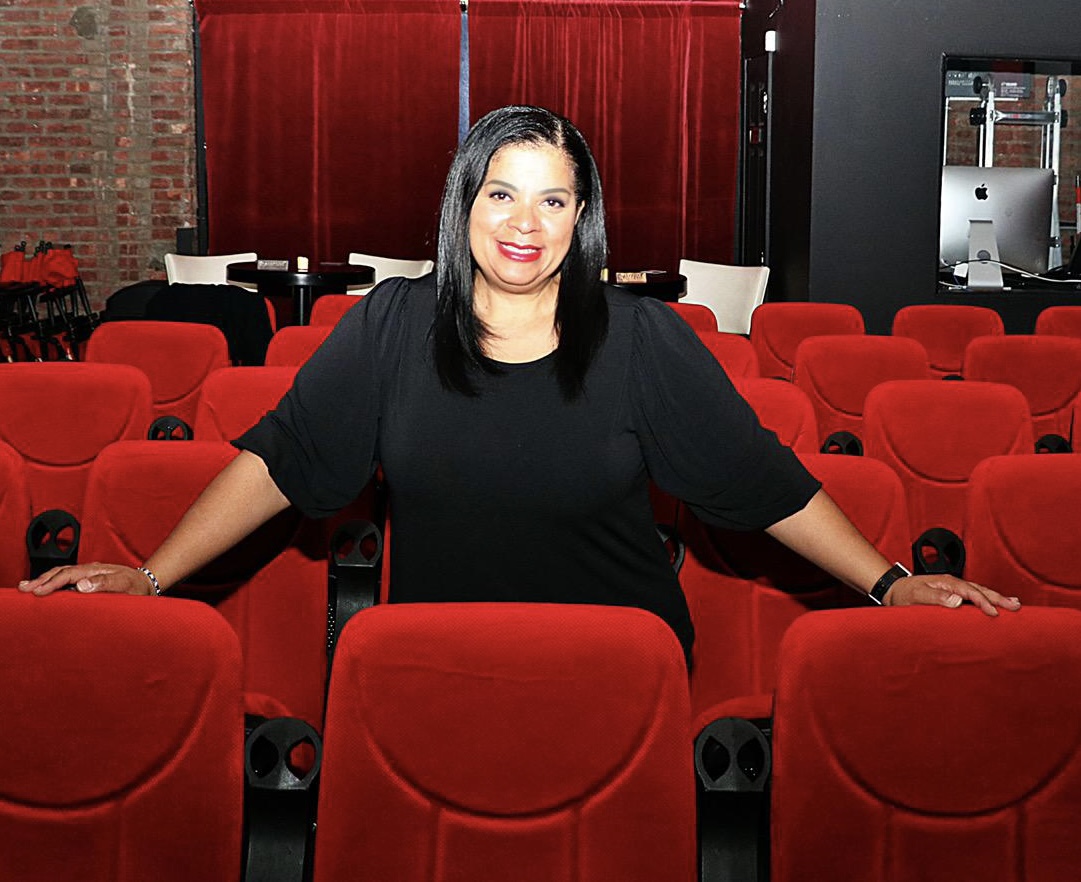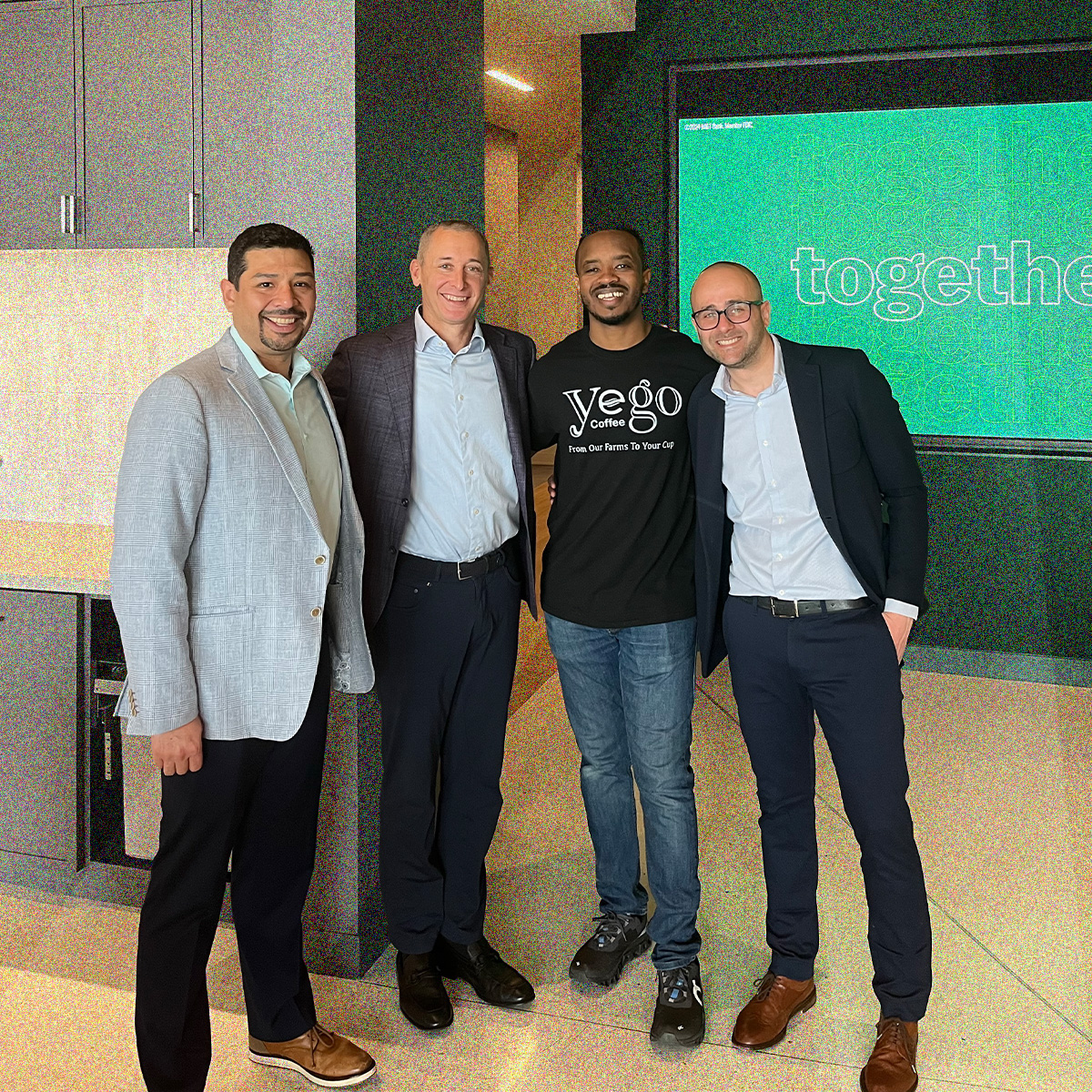“Ascendus was the first place that looked at the entire picture. They were the first place that recognized what I had accomplished. It makes a world of difference to have someone believe in you. Ascendus gave me resources, helped me build credit, and helped me prove that I could pay back a loan.”


How Emelyn is Creating Opportunities for Minority Filmmakers
Emelyn Stuart was working in corporate America when she was handed a film script from a friend. She had no idea that it would change her life entirely. She read her friend’s script and found it to be hilarious, she was sure it would get made into a movie. But her friend was having a hard time getting anyone to move forward with his script. Emelyn was confused, how could someone so talented and with such a great script not be able to make it in the industry, she thought to herself. The problem was there weren’t many opportunities for minority filmmakers, and minority creative professionals, in general. Emelyn didn’t know how, but she knew that she was going to change that.
Emelyn decided to help her friend produce his movie. Although she had friends in the film industry, she had never worked directly in it. She learned from scratch how to turn something from writing into a motion picture. The movie, titled Wings and Beer, went on to be a hit and Emelyn went on to discover her love of production. “I loved being able to bring something from their brain and heart to the public.” Emelyn wanted to start helping more minority artists. She started producing tv shows, web series, and movies. In 2012, Emelyn started the October Film Festival to support minority creators, provide resources for them, and teach them industry skills. “The festival was solving a problem that I had. No one was looking out for me and the films I was producing, and other festivals were missing the aspects of resources and empowerment. I wanted to provide that.”
Even with Emelyn’s production, the films were still having a hard time getting distribution. “The people who made those decisions said that Black and Latino films didn’t have an audience, but I knew that wasn’t true.” Emelyn wanted to take control of the narrative, and she didn’t believe that one person’s opinion should decide anyone’s future. “I thought that can’t be the way the story ends, one guy saying your project is not worthy shouldn’t mean it’s game over.” Finally, Emelyn had enough of hearing the word no. She decided that she was going to build her own movie theater.
FINDING SOMEONE TO PRODUCE HER DREAM
Emelyn liquidated all her assets and raised all the money on her own, with no partners or investors. She had 75% of the funding available, and only needed the last 25%, but the banks still couldn’t provide her funding. She had been funding all of her projects and ventures herself, so she had a lack of credit. Although she could prove that her work was successful, she couldn’t prove that she could pay back a loan. Emelyn needed a line of credit, and that is when she turned to Ascendus. “Ascendus was the first place that looked at the entire picture. They were the first place that recognized what I had accomplished. It makes a world of difference to have someone believe in you. Ascendus gave me resources, helped me build credit, and helped me prove that I could pay back a loan.” Through Ascendus, Emelyn was able to receive a Line of Credit loan and expand her existing cinema. She is the first African American and Latina person to own an independent movie theater and now will be the first African American and Latina to own a multiplex theater in New York.
When COVID-19 hit, Emelyn used the theatre for people in her community to view funerals of their loved ones in other countries since travel was not as accessible, at no cost to those viewing. “It was the saddest place, but it allowed me to use the space for something that was important. There was no other way they could share this experience with loved ones.”
Emelyn’s theatre became an important aspect of the community, and she wanted to engage every age group. Before the pandemic, she started a senior program that allowed seniors to watch movies and have a place to feel connected. When the pandemic forced this program to close, Emelyn donated DVD players and delivered DVDs to the homes of the seniors so that they could still be engaged in something they loved. For teenagers, Emelyn installed a Nintendo system so that they could come to the theatre and play video games with their friends. She shows new studio releases, rents the space out to community boards, police department and churches. She also hosts comedy shows, spoken word nights, and premiers for independent film makers.
In addition to showcasing movies and being an event space, the theatre also includes a café specializing in Latin food. The café serves as an essential food option for both commuters and the residents that live in the community. During the pandemic, Emelyn created a program to give away food from the café to those in need every day. She also created a subsidized catering option so that independent filmmakers would be able to feed their workers at a lower cost.
Emelyn’s community effort doesn’t stop there. She charges lower prices for tickets to her theatre, to match the median income of her community. During the pandemic, Emelyn also provided laptops and educational resources to her community so that they could apply for jobs and unemployment.
THE FUTURE OF FILMMAKING
Throughout all her ventures, Emelyn’s focus remains on helping minority filmmakers and creatives. She hopes to continue using her earnings to create spaces and opportunities that are affordable and accessible to those that are disadvantaged. Since opening, Emelyn’s theatre has become so popular that she has a three-month waiting period to use the space. Because of this, Emelyn has plans to expand to a multiplex cinema.
Emelyn has also launched Stuart Cinema on Demand, an effort that came about during the pandemic to allow people to view independent and mainstream movies from her theatre in the comfort of their own homes. She hopes to continue using the platform and the multiplex as a space for independent, minority, filmmakers to showcase their work and to provide more resources for their work to be recognized by the public. “My daughter started acting when she was five, and she couldn’t get roles because of her skin color. When I first started, I felt like I was running against a wall because no one wanted Black and Latina projects. Now, I can see that the entertainment industry is starting to make changes, and I want to be a part of that change.”
To learn more about Stuart Cinema and Cafe, visit: https://www.stuartcinema.com/




